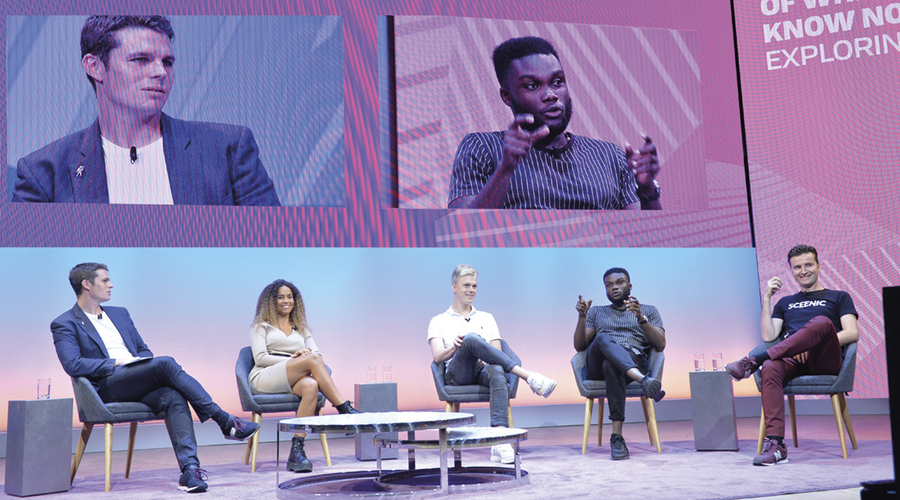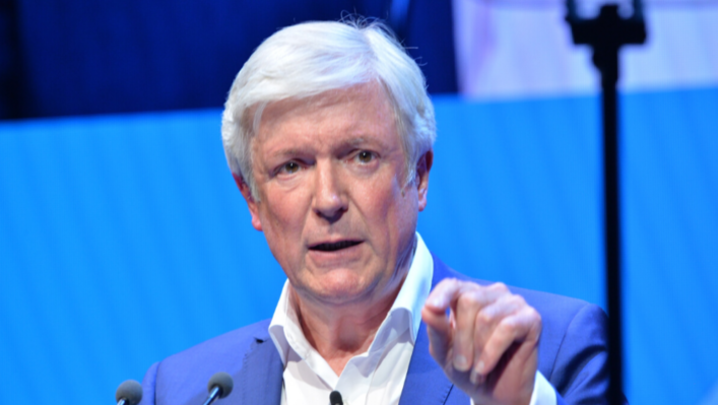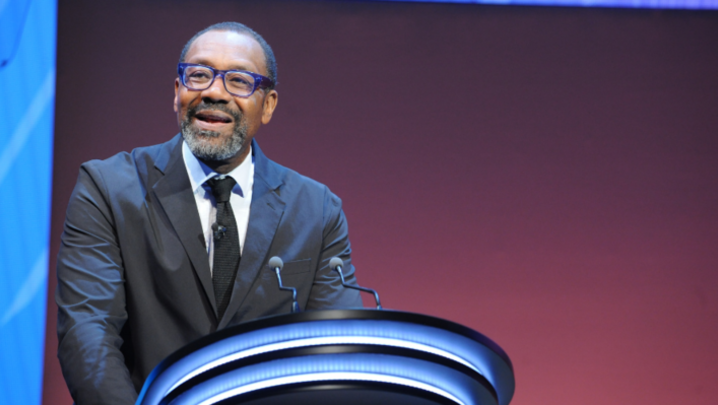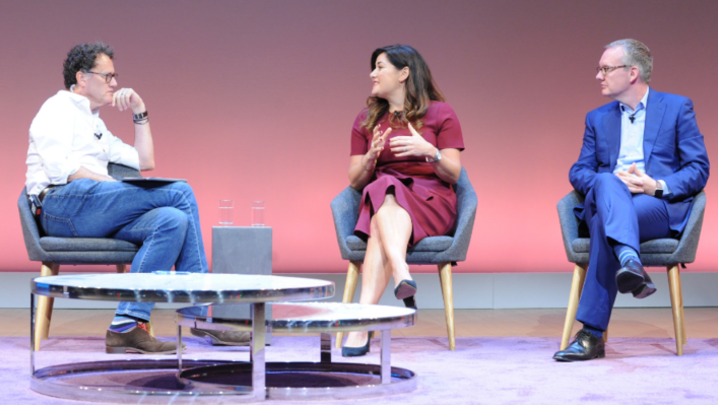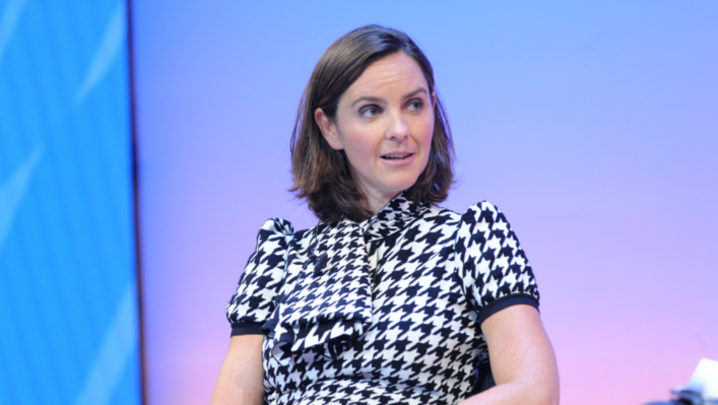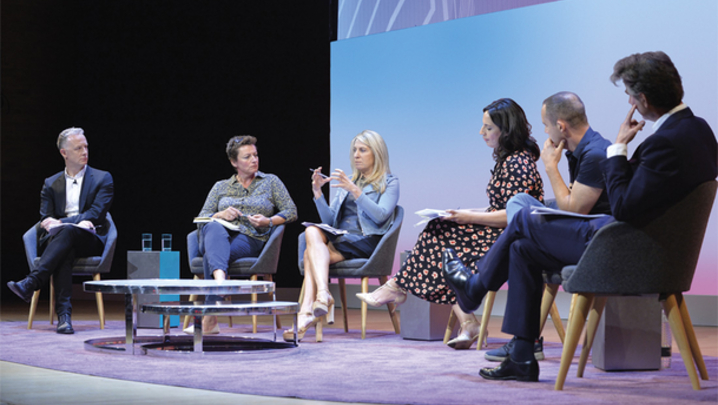Young entrepreneurs and influencers analysed the importance of authenticity, social activism and new platforms such as TikTok to this generation
Video-sharing platform TikTok was the word on everyone’s lips leaving the second session, “Exploring Gen Z”. Many had not heard of the Chinese-owned social media sensation, but were keen to find out more in order to reach the elusive next generation of viewers. Many market researchers describe Generation Z as those born after 1997.
Defined by session chair Rob Chapman as the generation “for whom 9/11 wasn’t a coming of age event”, Gen Z were instead shaped by the recession of the last decade.
In one of the most talked-about events of the convention, the young panel tried to pinpoint what new audiences are looking for and what unites them in a fast-moving, connected world.
A short video laid out the parameters, namely that the boundaries between different types of content, such as advertising and entertainment, are blurring.
In the film, one of YouTube’s biggest stars, Vikram Singh Barn – or Vikkstar123, as he is better known to the 10 million subscribers across three channels who follow his work and that of his collaborators, the Sidemen – said starkly that he really enjoys “the creative and commercial freedom I have on YouTube”.
He has worked with traditional media before but often found it “restrictive” creatively and “commercially… As it stands currently, there’s little incentive for us to work with TV or traditional media.”
With YouTube handling merchandise for its creators (those with more than 10,000 subscribers can sell merchandise under their videos) – and YouTube, Twitch and other social media giving fans the ability to donate to content creators in exchange for a shout out – it is no wonder that the major new talent often prefers online platforms to traditional TV.
So what can TV do to compete for the young eyeballs it needs to survive?

Love Island winner Amber Gill told the audience that traditional media have to realise that Gen Z’s attention needs to be captured quickly.
Fanbytes CEO Timothy Armoo – whose company has worked on campaigns to engage youngsters for brands by the BBC and the government – said the new generation have longer attention spans than they are given credit for. “The idea that attention spans have reduced doesn’t make sense in a world where people sit down and give all their attention to Love Island or a Netflix show. It’s not attention spans that have reduced, it’s interest spans,” he said.
Paul Bojarski, CEO of interactive viewing technology company Sceenic, pointed out that Gen Z “love to interact with each other”.
YouTube star Caspar Lee – who has 7.5 million followers and has set up a talent management agency with fellow social media entrepreneur Joe Sugg – explained: “We have the tools to see exactly where we’re losing the audience… and [know about] keeping an audience for as long as possible.”
He pointed out that YouTube’s “watch time” metric is used to recommend popular content, which can then snowball into a viral video.
Lee explained: “Traditional broadcasters sometimes put video up on YouTube [but] they’re not thinking about things such as Watch Time and wondering, ‘Why are my videos not doing as well?’”
All the panellists called on TV producers to embrace TikTok. Recently, Armoo’s company helped The Washington Post win around 500,000 followers on TikTok by “getting people in the office to create pranks and skits on their fellow employees.… Now… it is one of the most-followed news organisations.… Because it took this approach of not just going directly for the sell… it really obeyed the rules of the platform.”
Armoo added: “The other thing about the Gen Z audience is [that] everyone basically wants to have their own TV show. When you post something on Insta, Chat or TikTok, fundamentally what you’re posting out is what you’d post out if you had a film crew following you the whole time.”
Gill said that one of the key things driving younger viewers is the idea that “it’s important to look after the world and each other”, adding that they are “very aware of the consequences” of their actions. Chapman said that “growing up in the recession has changed their outlook… this generation feels the need to be part of the solution.”
Taking an interest in what and how young viewers are watching is important, said Bojarski, who revealed that his research techniques include going on trains and buses at 3:00pm to see what schoolchildren are doing.
He said that this gives his company ideas about the kind of technologies and content to build, including using Sceenic’s Watch Together software, which has been used by companies such as BT Sport to allow conversations to happen on screens in the same place that programmes are viewed.
Authenticity is key to Gen Z, said Lee, adding that they like content that’s “not too safe… and people who are real and authentic”, even if “they fuck up”.
'You could actually create a TV show without creating the actual show'
Love Island is one of the few scheduled TV shows that cuts through to younger viewers, but “that’s purely because of the social media conversation that’s going on… you want to be part of it,” said Gill. “You want to be up-to-date with what’s happening.”
That prompted Lee to admit: “I didn’t watch Love Island this year, but I know exactly who you are and who you’ve dated.” Armoo added that, thanks to the social media a successful show generates, “You could actually create a TV show without creating the actual show.”
Tapping into the social media culture that Gen Z is rooted in is important for anyone wanting to reach them, said Armoo. He explained that Fanbytes carried out a campaign for the Government to promote the national living wage to young ethnic-minority audiences by using influencers and memes. These included one of “a cat stealing a dog’s food and the dog chasing it.… People saw that and identified with that meme as, ‘this is like my employers stealing from me’.”
Lee said some broadcasters understand how to work with the new platforms, citing Good Morning Britain and Sky News on YouTube.
'You have an insane amount of content… that is just begging to be seen'
He pointed out that some of these services, including YouTube, want to work with the BBC and ITV because “they still have that image of being the Wild West”. And he suggested that traditional broadcasters should
hire staff who understand the new platforms.
The delivery mechanism had to be right, stressed Armoo, who addressed the audience: “You guys are so lucky, as you have an insane amount of content… that is just begging to be seen. [Make] sure the delivery mechanism is done in a way that feels natural to whatever platform you’re using.… Just spend a bit of time on the platform and you get to understand [it].”
Gill advised using more behind-the-scenes footage – something echoed by one of the People’s Panel contributors later, who said such content could be made even better by using virtual reality – and incorporating viewers’ own storylines, as with Netflix show Black Mirror: Bandersnatch.
And Lee concluded with this glimmer of hope for broadcasters: while the money to be made on YouTube is huge and talent feel that they have more editorial control on the platform, as he saw when his friend Joe Sugg was on Strictly Come Dancing, “there’s still that prestige” associated with television.
Session 2, ‘A far off place, of which we know nothing – exploring Gen Z’, featured: Timothy Armoo, CEO, Fanbytes; Paul Bojarski, CEO, Sceenic; Amber Gill, Love Island winner 2019 and influencer; and Caspar Lee, vlogger and entrepreneur. It was chaired by the CEO and partner of Founders Intelligence, Rob Chapman, and produced by Sally Shelford and Victoria Kennedy. Report by Tara Conlan.

